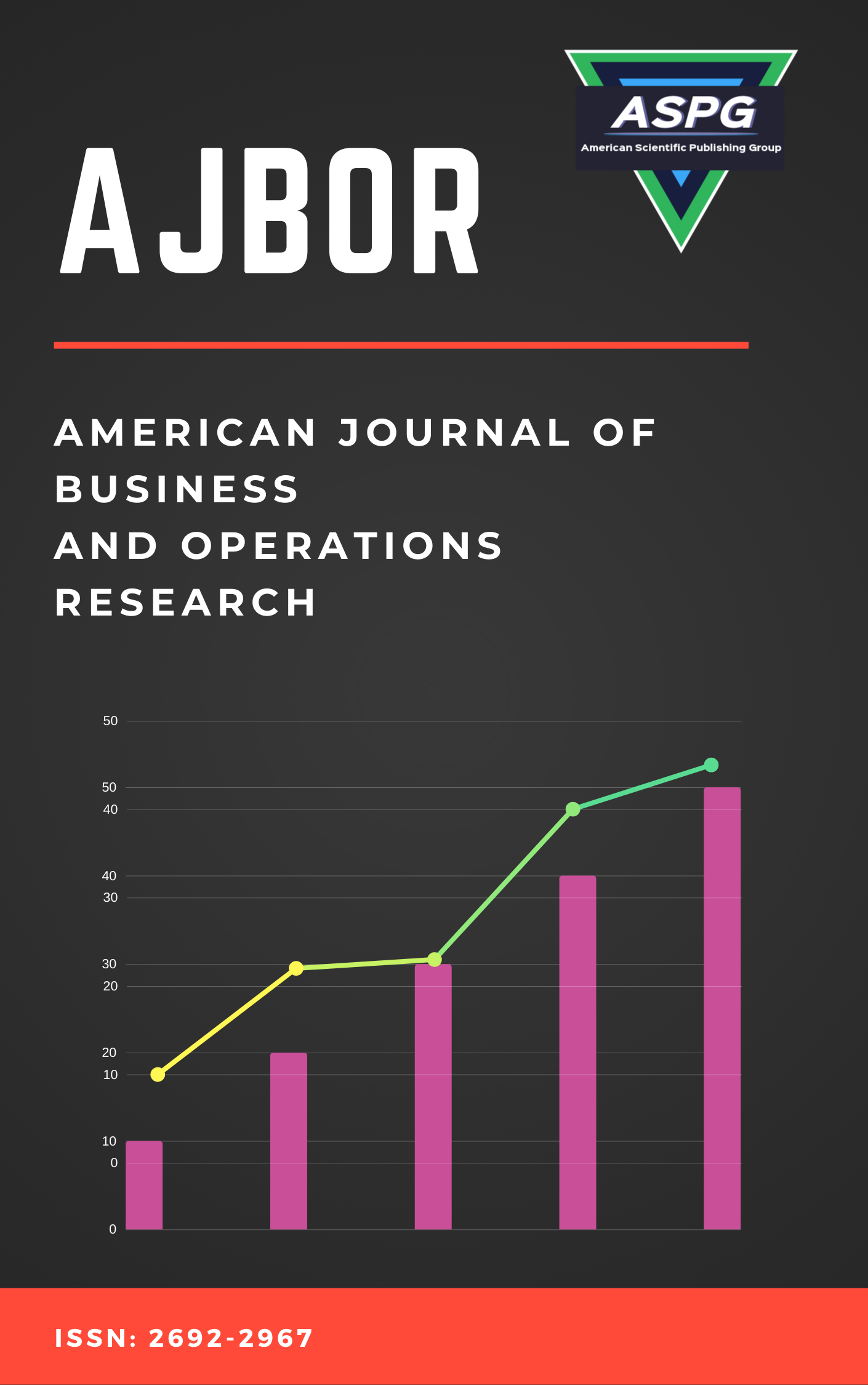

Volume 0 , Issue 2 , PP: 97-103, 2019 | Cite this article as | XML | Html | PDF | Full Length Article
Abedallah Z. Abualkishik 1 * , Rasha Almajed 2
Effective project management relies on smart resource allocation strategies that navigate the complexities, in project dynamics. However, it is important to consider factors when choosing projects for a portfolio and allocating resources to that portfolio. In this paper, we present a data-driven framework for strategic resource allocation in project management. By using the Fuzzy TOPSIS method this framework combines evaluations into a model improving decision-making accuracy. Our study identifies ten factors that contribute to project complexity and transforms opinions into fuzzy numbers to evaluate project performance. When we applied this framework to five projects, we gained insights into how they align with established criteria resulting in nuanced rankings based on calculated closeness coefficients. This research lays the foundation for resource allocation strategies by advocating for the integration of dynamic data sources and advanced analytical techniques. The goal is to enhance adaptability and facilitate implementation, within project management paradigms.
Data-driven approach , Decision-making , Operation Research , Fuzzy TOPSIS.
[1] Singh, H. (2015). Project management analytics: A data-driven approach to making rational and effective project decisions. FT Press.
[2] You, Z., & Wu, C. (2019). A framework for data-driven informatization of the construction company. Advanced Engineering Informatics, 39, 269-277.
[3] Ryan, G. W., Bloom, E. W., Lowsky, D. J., Linthicum, M. T., Juday, T., Rosenblatt, L., ... & Sayles, J. N. (2014). Data-driven decision-making tools to improve public resource allocation for care and prevention of HIV/AIDS. Health Affairs, 33(3), 410-417.
[4] Vanhoucke, M. (2018). The data-driven project manager: A statistical battle against project obstacles. Apress.
[5] Orwin, R. G., Edwards, J. M., Buchanan, R. M., Flewelling, R. L., & Landy, A. L. (2012). Data-driven decision making in the prevention of substance-related harm: results from the Strategic Prevention Framework State Incentive Grant Program. Contemporary Drug Problems, 39(1), 73-106.
[6] Chebeir, J., Asala, H., Manee, V., Gupta, I., & Romagnoli, J. A. (2019). Data driven techno-economic framework for the development of shale gas resources. Journal of Natural Gas Science and Engineering, 72, 103007.
[7] Payyappalli, V. M. (2019). Data-Driven Fire Risk Management: Spatio-Temporal Prediction and Resource Allocation Models (Doctoral dissertation, State University of New York at Buffalo).
[8] Luo, L., Li, J., Xu, X., Shen, W., & Xiao, L. (2019). A data-driven hybrid three-stage framework for hospital bed allocation: a case study in a large tertiary hospital in China. Computational and mathematical methods in medicine, 2019.
[9] Mandinach, E. B., Honey, M., & Light, D. (2006, April). A theoretical framework for data-driven decision making. In annual meeting of the American Educational Research Association, San Francisco, CA.
[10] Ronka, D., Geier, R., & Marciniak, M. (2010). A practical framework for building a data-driven district or school: How a focus on data quality, capacity and culture supports data-driven action to improve student outcomes. PCG Education.
[11] Zhang, Y., Ren, S., Liu, Y., Sakao, T., & Huisingh, D. (2017). A framework for Big Data driven product lifecycle management. Journal of Cleaner Production, 159, 229-240.
[12] Selaru, C. (2012). Resource allocation in project management. International Journal of Economic Practices and Theories, 2(4), 274-282.
[13] Ponsteen, A., & Kusters, R. J. (2015). Classification of human-and automated resource allocation approaches in multi-project management. Procedia-Social and Behavioral Sciences, 194, 165-173.
[14] Atkinson, R., Crawford, L., & Ward, S. (2006). Fundamental uncertainties in projects and the scope of project management. International journal of project management, 24(8), 687-698.
[15] Bendoly, E., & Swink, M. (2007). Moderating effects of information access on project management behavior, performance and perceptions. Journal of Operations Management, 25(3), 604-622.
[16] Beloglazov, A., Abawajy, J., & Buyya, R. (2012). Energy-aware resource allocation heuristics for efficient management of data centers for cloud computing. Future generation computer systems, 28(5), 755-768.
[17] Maritan, C. A., & Lee, G. K. (2017). Resource allocation and strategy. Journal of Management, 43(8), 2411-2420.
Alidrisi, H., & Mohamed, S. (2012). Resource allocation for strategic quality management: a goal programming approach. International Journal of Quality & Reliability Management